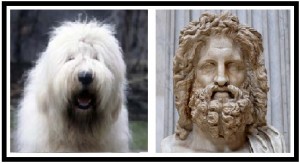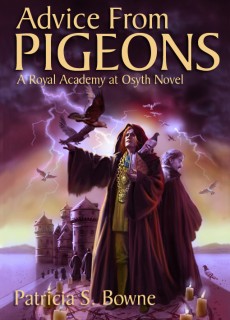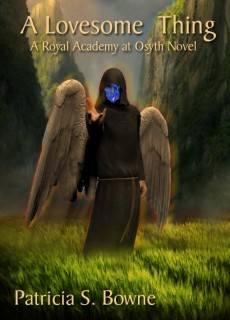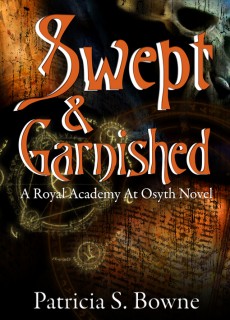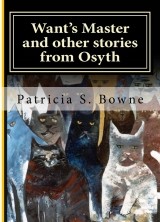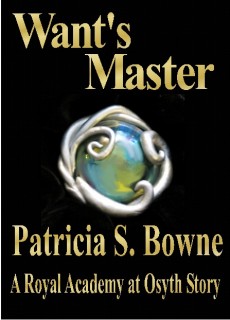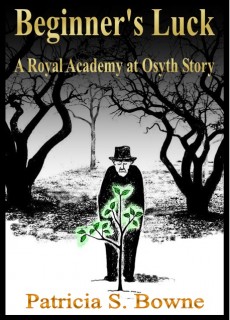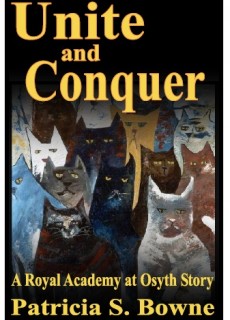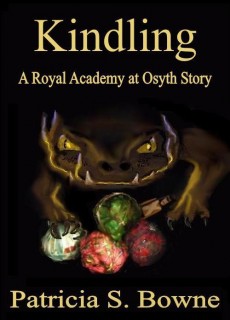Here I sit drinking coffee, minding my own business, when the man across the street erupts into pagan invocations. “ZEUS! Dammit!”
In my back yard, hanging out the laundry, it comes again. “Zeus! Apollo!”
No, I don’t live down the street from a neo-hellenist. I live across the street from a perfectly normal city park, in which people walk their dogs; and an increasing number of these dogs are named after Greek gods.
Dogs named ‘Zeus’ appear to be the most ill-behaved. Probably they have delusions of grandeur. Personally, I do not see how someone as subordinate as a domestic dog could possibly live up to the name of Zeus, no matter how many inappropriate things he eats or rolls in during his daily walkies. These men have set their dogs up for failure.
Apollo is a lovely doberman, who lives up to his name in energy, radiance, and chasing things. Unlike his namesake, if a woman he was chasing turned into a tree, this Apollo would have some use for it.
Nobody seems to name their dog after Hermes — perhaps it sounds too much like an STD — though ‘Mercury’ would be perfect for a weimeraner. Hephaestus is also a sleeper, probably because who can pronounce it? And though the female dogs in the park may all be named Athena, Hera and Artemis, they don’t seem to do things that require owners to invoke them in tones loud enough to reach my porch.
All this makes me think about naming things, though. Naming things is a perennial problem in fantasy literature, especially when you’re trying to create a new culture. Readers have gotten sophisticated and you can no longer simply insert random apostrophes (Fr’ed, R’andolph) and be done with it.
In the Osyth stories, I felt myself on pretty stable ground. I have a feel for the range of names in your modern University. Plus, I had secret weapons: a background in marine biology, and not one but two copies of Nelson’s Fishes of the World. Armed with these, I was ready to create names for Demonology professors and their study subjects. Not only did I know these names, I had opinions about them. I knew which ones were good guys and bad, and how much I liked their faces.
My method was not foolproof. I named one character after the triggerfish Balistes, and then had second thoughts. Too obvious! Why, the whole family was named after that genus — anybody would recognize that! I might as well have named him ‘Zeus!’ So I changed it to Baristes, under the impression that I had invented a completely new word. I didn’t find out about baristas until after the story was published.
As I kept writing, I branched out from fish. Some of my favorite characters can be found at sites like seaslugforum. And some names I made up out of whole cloth, or picked at random out of the phone book. Having learned my lesson with ‘Baristes,’ I now google most names to see if they happen to mean ‘jock itch’ in a foreign language.
I’m now writing a prequel, set in a 15th-century University with students from all over the world. The University is actually the easy part; when stumped, I can always go back to my marine biology books. But I’ve realized I have no idea how names are structured in homogenous traditional societies. How alike are they? In one village, for instance, I have siblings named Paio and Minter. Is this ridiculous or not? I’ve no idea. Other people in the village are named Crowe, Carabelle, Orn, Szince, Shennen, and Mag. I haven’t a clue whether these names fit together, or how to find out.
I can only hope that the completed book will have enough rabid fans that they’ll put me on the spot about this. The way I might put a dog-owner on the spot for naming his grovelling dependent ‘Zeus’, were I so inclined.

